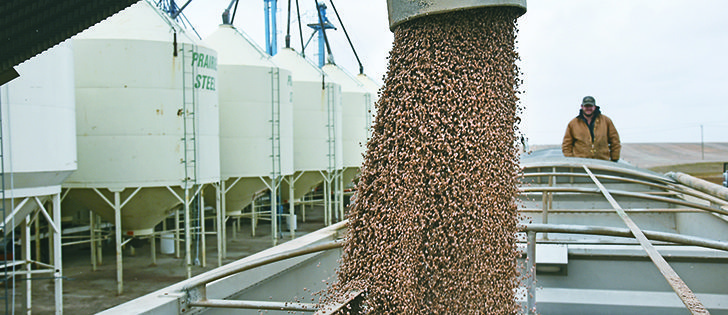Pulse Canada official says they were never told why it was rejected but is pleased that re-cleaning brought it into compliance
CALGARY — Canada’s top lentil buyer has rejected a shipment of bulk red lentils for containing a genetically modified crop.
Turkish regulators rejected the shipment earlier this year, but it was recently brought back into compliance through re-cleaning.
“That’s the developing protocol that hopefully will seamlessly be possible to apply to any such other incidents that could happen in the future,” said Gord Kurbis, director of market access and trade policy with Pulse Canada.
He didn’t have many details about the incident because Turkish regulators haven’t provided any, including the sampling protocol, testing method and what caused the shipment to be rejected. “We were never told or ever received confirmation about what GM event or even what grain, whether it be soy, corn or canola, was detected,” said Kurbis.
Read Also

Farming Smarter receives financial boost from Alberta government for potato research
Farming Smarter near Lethbridge got a boost to its research equipment, thanks to the Alberta government’s increase in funding for research associations.
“It could have been a dust issue. It could have been an actual seed.”
He suspected that the incident could have had something to do with the Turkish general election, which took place June 7.
The ruling party may have been “hyper-vigilant” in testing to prevent its opponents from “making political hay” with the issue.
Quinton Stewart, merchandising manager of pulses with Viterra, said the incident has the potential to disrupt trade with Canada’s largest lentil buyer.
Turkey is usually the second largest importer behind India, but for the first four months of 2015 it has been Canada’s top customer, buying 145,000 tonnes of lentils worth $130 million.
“We have enough risk on our plate for the markets anyway. We don’t need to have the political issues as well,” Stewart said in an interview at the Pulse & Special Crops Convention.
“If you want a fluid market with a wide variety of participants, then you need that certainty.”
He said a lot of Canadian exporters are still uneasy with the re-cleaning protocol, considering importers have tests capable of detecting one part per trillion.
“Certainly for a lot of the companies here today, they are not necessarily comforted today with how things are going to play out,” said Stewart.
Tuba Memis, general manager of Mamisoglu Group-Tat, one of the biggest pulse and rice manufacturers and exporters in Turkey, said the Turkish government has announced it will now test all incoming lentil shipments for GM crop residue.
She said the re-cleaning protocol should be finalized in the next two months.
Turkey re-exports many of the lentils it imports to other countries in the Middle East, such as Iraq.
Stewart said the country’s renewed focus on enforcing its zero tolerance policy for GM crops has the potential to disrupt exports to Canada’s top customer.
“It absolutely can threaten it,” he said. “It certainly could affect export volumes.”
However, overseas demand for split red lentils is inelastic, so if Turkey doesn’t perform the re-exporting function, it may shift to other places such as Dubai or Egypt, said Stewart.
He also said India is expected to have larger-than-usual lentil import requirements in 2015-16 because of a disappointing 2014-15 crop, which means it could pick up any slack in the Turkish market if that materializes.


















